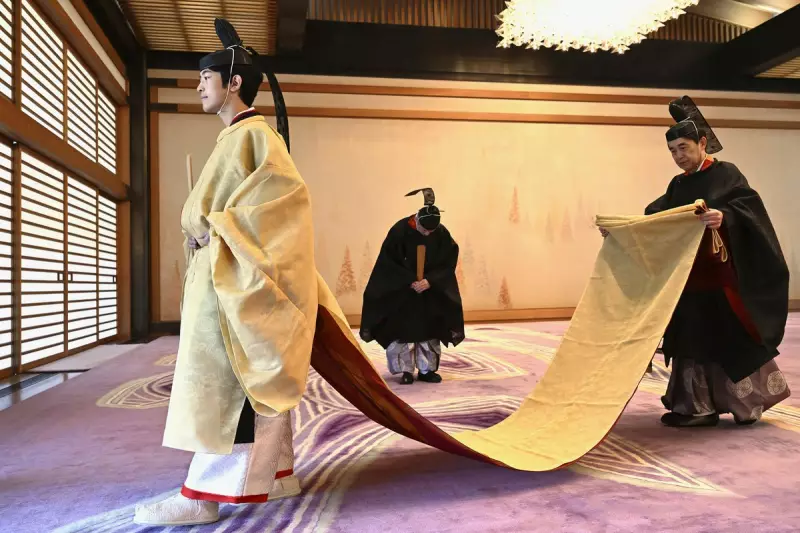
The opulent and mysterious Daijosai ceremony, a central pillar of Emperor Naruhito's enthronement, has thrust Japan's ancient monarchy into a starkly modern controversy. This lavish ritual, shrouded in secrecy and funded by the state, has become a lightning rod for debate about the royal family's place in contemporary society.
Held deep within the Imperial Palace's specially constructed pavilions, the Daijosai is a Shinto rite where the Emperor offers newly harvested rice to deities, praying for peace and bountiful harvests. Critics, however, see a costly anachronism. The ceremony reportedly cost the Japanese taxpayer billions of yen, a staggering sum that has raised eyebrows at a time of public fiscal concern.
A Clash of Secrecy and Scrutiny
The core of the issue lies in the Imperial Household Agency's infamous veil of secrecy. The agency has fiercely guarded the details of the ritual's expenses, refusing to provide a transparent breakdown of the colossal budget. This lack of accountability has fuelled public scepticism and led to allegations of a "black box" of spending.
This defensive stance is emblematic of a wider dilemma facing the world's oldest continuous monarchy: how to honour its deep-rooted, tradition-bound past while operating under the scrutiny of a 21st-century democracy that demands transparency and fiscal responsibility.
The Shrinking Royal Ranks
The financial controversy is compounded by a looming succession crisis. The royal family is grappling with a rapidly shrinking number of members, particularly male heirs to secure the line. Stringent laws requiring female members to forfeit their royal status upon marrying a commoner have severely depleted its ranks.
This dual threat—financial opacity and a precarious future—poses the most significant challenge to the institution in decades. The public, while largely maintaining respect for the Emperor, is increasingly questioning the cost and relevance of supporting such an insular and traditionalist system.
The Daijosai ritual, intended to solidify the Emperor's divine connection, may ironically be the event that forces a long-overdue national conversation. Japan must now decide what it truly values in its monarchy and what price it is willing to pay to preserve it for generations to come.





